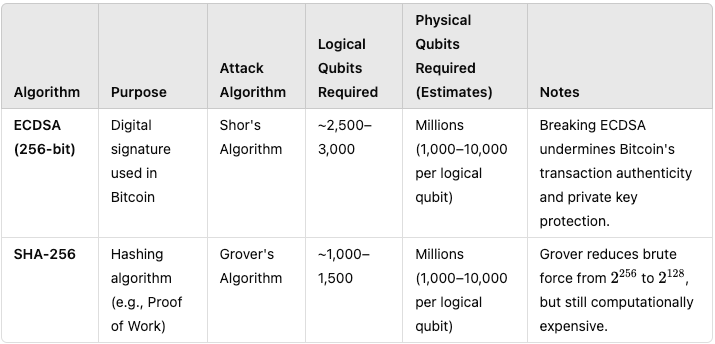Google's Willow: a quantum leap for cracking Bitcoin's encryption? 😳🤖; Norwegian FinTech makes history as first Apple Pay competitor on iPhone📱🇳🇴; Gen Digital buys MoneyLion for $1 billion 💸🤝
FinTech is Eating the World, 10 December
Hey Everyone,
Happy Tuesday! Today’s issue is incredibly hot as we’re looking into Google's quantum computing breakthrough Willow and whether it’s a threat to Bitcoin's encryption (holistic view on what it means, what can we expect next + bonus list of top AI companies & their pitch decks), Norwegian FinTech that just made history as first Apple Pay competitor on iPhone (what it’s all about, why it matters & what’s next + bonus dives into Apple & Co), and cybersecurity giant Gen Digital which just acquired digital bank MoneyLion for $1 billion (what this means & what it tells us about the future of FinTech + bonus deep dive into MoneyLion & their latest financials and some priceless M&A templates that can save you billions). So let’s just jump straight into the amazing stuff 🌶️
Google's Willow: a quantum leap for cracking Bitcoin's encryption? 😳🤖
The news 🗞️ The crypto world buzzed with concern when Google GOOGL 0.00%↑ unveiled its latest quantum computing breakthrough - the 105-qubit Willow processor.
Some Bitcoin holders feared this technological advancement might compromise their digital assets' security. However, a closer look at the numbers and technology reveals these fears are premature.
Let’s look at this and see what it’s all about.
More on this 👉 First and foremost, we must realize that quantum computers operate fundamentally differently from classical computers, using quantum bits (qubits) that can exist simultaneously in multiple states.
Google's Willow chip demonstrated impressive capabilities by performing complex calculations in five minutes that would take traditional supercomputers roughly 10 septillion years to complete. Sure, this sounds alarming, but it's crucial to understand the vast gap between current quantum capabilities and what's needed to crack Bitcoin's encryption.
Follow the numbers 📊 Bitcoin uses a 256-bit encryption system based on the Elliptic Curve Digital Signature Algorithm (ECDSA). Breaking this encryption would require a quantum computer with over 1 million stable qubits - nearly 10,000 times more powerful than Willow's current 105 qubits.
More conservative estimates suggest needing approximately 317 million physical qubits to crack a single Bitcoin key within an hour.
That said, the recent market jitters and temporary sell-offs following Willow's announcement reflect a misunderstanding of the technological gap. Oh, well… 🤷♂️
Experts in both quantum computing and cryptography estimate it will take at least 10-20 years before quantum computers could pose any meaningful threat to Bitcoin's security infrastructure.
On top of that, the crypto community isn't waiting for quantum computers to catch up. Developers are actively working on quantum-resistant solutions, including post-quantum cryptography protocols. These developments suggest Bitcoin's security will evolve alongside quantum computing advances.
✈️ THE TAKEAWAY
What’s next? 🤔 So in a nutshell, rather than viewing Willow as a threat, the crypto community should see it as a catalyst for innovation. This development is hence pushing the boundaries of both quantum computing and cryptographic security, potentially leading to:
Enhanced encryption standards for all digital assets
Development of quantum-resistant blockchain protocols
Increased investment in cryptographic research
Greater collaboration between quantum computing and blockchain experts
Sounds in fact bullish to me.
ICYMI:







